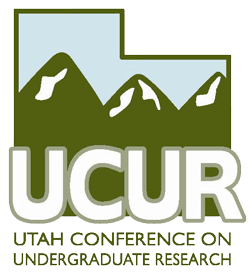Document Type
Poster
Journal/Book Title/Conference
Presented at Utah Council for Undergraduate Research, February 28, 2014
Publication Date
2-28-2014
Faculty Mentor
Brian Belland
Abstract
Problem based learning is an approach to education where students develop solutions to authentic problems (Hmelo-Silver, 2004) with support from scaffolding (Wood, Bruner, & Ross, 1976; Reiser, 2004). Computer based scaffolding helps students organize thoughts and arguments while solving problems (Belland, Glazewski & Richardson, 2008). We examined how students from one small group constructed order in their interactions and arguments as they solved an environmental issue using a stakeholder lens. Method Setting and Participants Using stakeholder perspectives (e.g., farmers or the Environmental Protection Agency), seventh-grade students investigated their local river's water quality. Participants were from three periods; two periods were allowed to work with computer-based scaffolding. All students had access to previous water quality data, and online resources. Using an ethnomethodological lens (Garfinkel, 1967), we focus on how a small group from the control condition formulated arguments and constructed order. Data Collection Groups were videotaped during the unit, the presentation, and post-unit interview. The researchers transcribed, coded and analyzed the video data. Results The group proposed only a semi-successful solution because they misconstrued the relevance of online sources and largely neglected their stakeholder position. References Belland, B. R., Glazewski, K. D., & Richardson, J. C. (2008). A scaffolding framework to support the construction of evidence-based arguments among middle school students. Educational Technology Research and Development, 56(4), 401–422. doi:10.1007/s11423-007-9074-1 Garfinkel, H. (1967). Studies in ethnomethodology. Englewood Cliffs, NJ: Prentice-Hall. Hmelo-Silver, C. E. (2004). Problem-based learning: What and how do students learn? Educational Psychology Review, 16(3), 235–266. doi:10.1023/B:EDPR.0000034022.16470.f3 Reiser, B. J. (2004). Scaffolding complex learning: The mechanisms of structuring and problematizing student work. Journal of the Learning Sciences, 13(3), 273–304. doi:10.1207/s15327809jls1303_2 Wood, D., Bruner, J. S., & Ross, G. (1976). The role of tutoring in problem solving. Journal of Child Psychology and Psychiatry, 17(2), 89–100. doi:10.1111/j.1469-7610.1976.tb00381.x
Recommended Citation
Turner, David, "A Case Study of Middle School Students’ Science Learning" (2014). Presented at Utah Council for Undergraduate Research, February 28, 2014. UCUR. Paper 12.
https://digitalcommons.usu.edu/ucur/12


